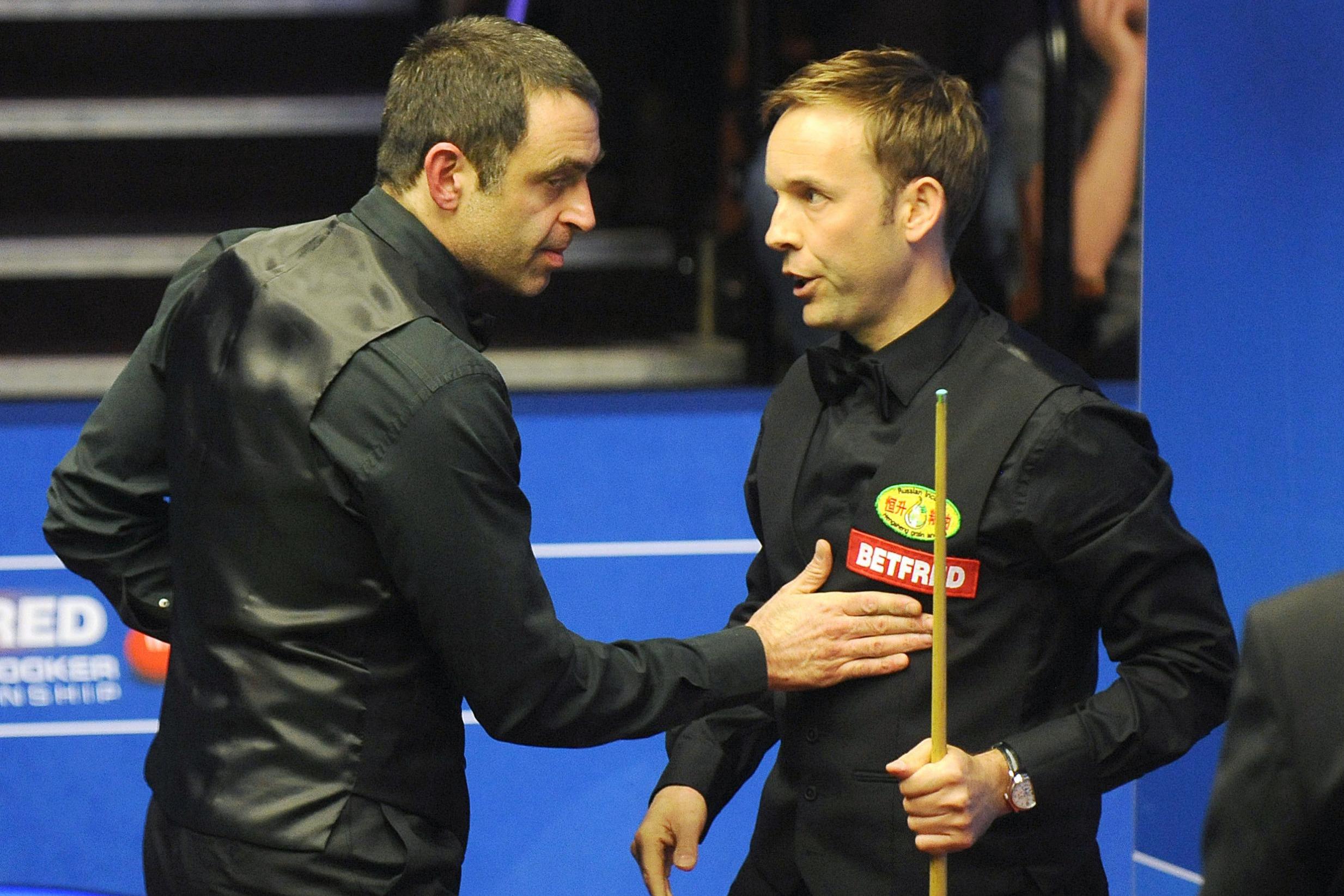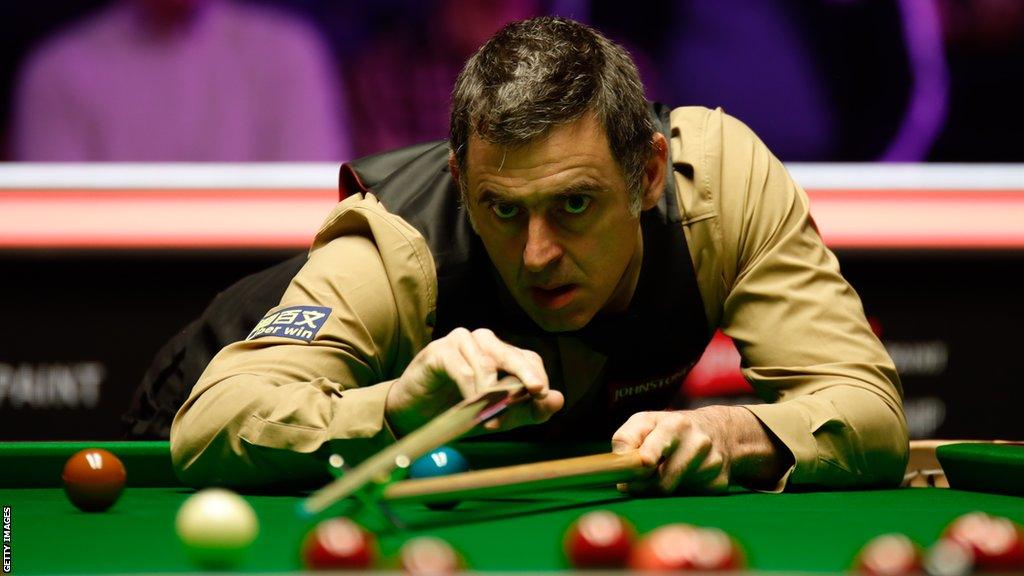Ronnie O’Sullivan: The Genius Who Made Fans Fall in Love — and Lose Their Minds
You can love him or loathe him — but you can’t look away. Every time Ronnie O’Sullivan bends over the green baize, the arena holds its breath. How did a boy wonder, blessed with unrivaled talent, transform into snooker’s ultimate anti-hero? This story is not just about century breaks; it’s about brilliance, rebellion, and an attitude that split the sport down the middle.

From the very first moment he picked up a cue, Ronnie was different. At just 10 years old he was already making century breaks. By 15 he turned professional, and at 17 he became the youngest ever winner of a ranking event. The press crowned him snooker’s “Golden Boy,” and fans believed the sport had found its new savior. But behind “The Rocket’s” blistering speed lay a complicated mind: perfectionist, restless, defiant of authority — a man determined to do things his own way.
In his early years, fans were mesmerized by his artistry: lightning-quick cueing, supernatural touch, an ability to “see” patterns that others couldn’t. But alongside the brilliance came warning signs. He criticized snooker’s image, clashed with governing bodies, and cherry-picked events to play. The same independence that made him magnetic also began to alienate him from the establishment.

Then came the controversies. Assaulting a press officer in 1996. Walking out mid-match against Stephen Hendry in 2006. Colorful, unfiltered comments in a 2008 press conference. Barging into Ali Carter during the 2018 World Championship. Heated rows with referees in the Crucible spotlight. Each episode added to his reputation — no longer just an eccentric artist, but a volatile force dividing opinion across the sport.

Opponents spoke out: Mark Selby admitted he felt disrespected by Ronnie’s dismissive shot-making. Younger players bristled at his claims they had “slow brains.” Even referees found themselves in his firing line. To neutrals, it felt arrogant; to his hardcore fans, it was refreshing honesty. Ronnie was unapologetically himself — and that authenticity, however abrasive, only deepened the love/hate dynamic.

Here’s the paradox: the more people booed, the better he seemed to play. Titles stacked up. Records tumbled. Century after century flowed from his cue as if on command. At 46, he became the oldest world champion in history. Every victory felt like salt in the wound for critics — they couldn’t deny his genius, but they hated his attitude.

O’Sullivan is more than a snooker player; he’s a cultural phenomenon. He forced the sport to confront itself — tradition versus freedom, etiquette versus individuality. Without Ronnie, snooker might still be seen as a quaint pub game. With him, it became theater: unpredictable, emotional, and unmissable.
Ronnie O’Sullivan remains the sport’s ultimate contradiction: the most successful, the most controversial, and the most captivating figure snooker has ever known. He is its hero and its villain, often in the same moment. And as long as “The Rocket” keeps playing, one thing is certain: the world will keep watching, whether they’re cheering or jeering.
FULL VIDEO
The Red Flame of the Rocket: The Enigma of Ronnie O’Sullivan

How do you define a genius who never fits the mold?
Ronnie “The Rocket” O’Sullivan is not only snooker’s greatest player, but also its most conflicted. For every sublime break and world title, there has been a tantrum, a walkout, or a controversy that ignited headlines. He is the sport’s brightest flame—brilliant, unpredictable, and often self-destructive.
Born in 1975 into a turbulent family life, O’Sullivan rose as a child prodigy who could make century breaks before most kids learned fractions. By his teenage years, he was already being hailed as the future of snooker. But with genius came volatility. Just like Alex Higgins before him, Ronnie embodied both irresistible brilliance and combustible rebellion.
Calm Before the Storm
Controversy shadowed O’Sullivan from the very beginning. At the 1996 World Championship, he assaulted a press assistant, earning a suspended sentence and fine. In 1998, after winning the Irish Masters, he was stripped of the title following a positive cannabis test. The Rocket was on the rise, but turbulence was always waiting.
Momentum Shifts
His behavior at the table became as famous as his victories. In 2010, O’Sullivan stunned the world by deliberately refusing to complete a 147 break, stopping at 146 in protest over the prize money. He repeated the stunt twice more. In 2006, during a UK Championship match against Stephen Hendry, he walked out mid-frame—one of the sport’s most shocking moments.
Ronnie O'Sullivan scores a 146 in protest
byu/Syscrush invideos
Even smaller gestures carried shock value: in 2005, he competed with a wet towel over his head; later the same year, he shaved his head bald during a tournament. Each incident seemed bizarre, but together they painted a portrait of a man at war with the game itself.
Struggles & Drama
The Rocket’s clashes weren’t just with himself.
-
He feuded with referees, most famously Olivier Marteel at the 2022 World Championship, and Desislava Bozhilova in 2024.
-
He accused Mark Allen of gamesmanship and reignited a bitter feud with Ali Carter after their infamous shoulder barge in 2018.
-
In 1996, he played left-handed against Alain Robidoux, prompting accusations of disrespect.
Off the table, his blunt comments sparked storms. He labeled Crawley, a tour venue, “a hellhole,” and at the 2008 China Open, delivered crude remarks in a press conference. He mocked younger players as “so poor that I’d have to lose an arm and a leg to fall out of the top 50.”
For Ronnie, silence has never been an option.

Closing the Show
Yet these controversies can’t be separated from his inner battles. O’Sullivan has spoken openly about his struggles with depression, mood swings, and substance abuse. His mid-match walkout in 2006, once seen as sheer petulance, later became understood as a breakdown during a “terrible mental state.” His protests over prize money or venues can also be seen as attempts to resist the suffocating structures of the professional tour.
In this light, the Rocket’s volatility is not just rebellion—it is survival.
Why It Matters
Ronnie O’Sullivan is more than a player. He is a mirror of the tensions within professional sport: artistry versus discipline, freedom versus structure, individuality versus governance. His controversies highlight the cost of genius in a system built on order. Fans adore him for his honesty and flair; administrators discipline him for the same.
He embodies the paradox of modern snooker: the sport’s biggest asset and its biggest headache.
Legacy & Final Thoughts
With seven World Championships, countless records, and shots that defy imagination, O’Sullivan is the undisputed GOAT. Yet his legacy is more than trophies. He represents the unfiltered human side of greatness: dazzling, infuriating, fragile, and magnificent.
Ronnie O’Sullivan is not just “The Rocket.” He is snooker’s eternal flame—burning red, sometimes out of control, but always impossible to ignore.




